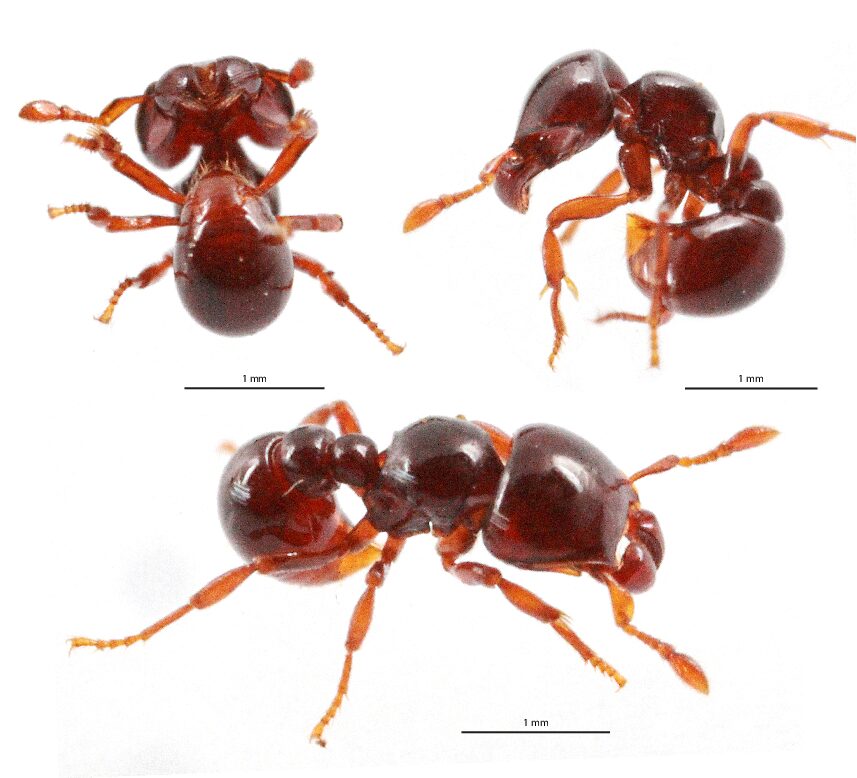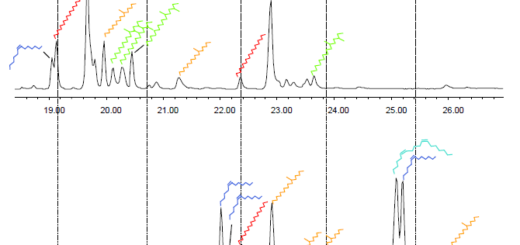Larvae influence foraging behaviour in acorn ants
A commentary by Eva Schultner accompanying the new study by Jalen D. Dunn et al., “Larval chemical cues induce rapid changes in foraging preferences of ant workers (Hymenoptera: Formicidae)” published in Myrmecological News.
A Review by Eva Schultner
Edited by Beatriz Portinha and Salvatore Brunetti


In superorganismal insects such as ants, developing individuals actively engage in colony life. The cooperative role of larvae is well documented, for instance in the context of nutrient processing: in many species, larvae are the primary consumers of animal prey and pass on pre-processed, protein rich food to adult nestmates. However, in many cases the mechanisms underlying larval regulation of colony-level processes are not well understood. In this study, the authors test whether the presence of larvae or their odors affects foraging behavior in the ant Temnothorax longispinosus. They find that workers in colonies exposed to larvae or to larva odor extracts increase the number of protein-foraging trips, but not carbohydrate-foraging trips. By showing that larva odors directly, and specifically, influence worker foraging behavior, the study provides evidence for the importance of brood in regulating collective processes in ant colonies. Having often been overlooked and designated as “chemically insignificant”, ant larvae appear to finally be getting the attention they deserve.






Recent Comments